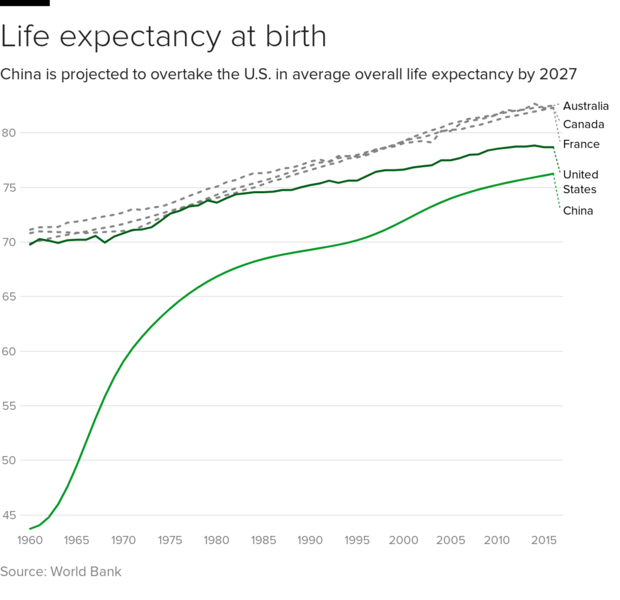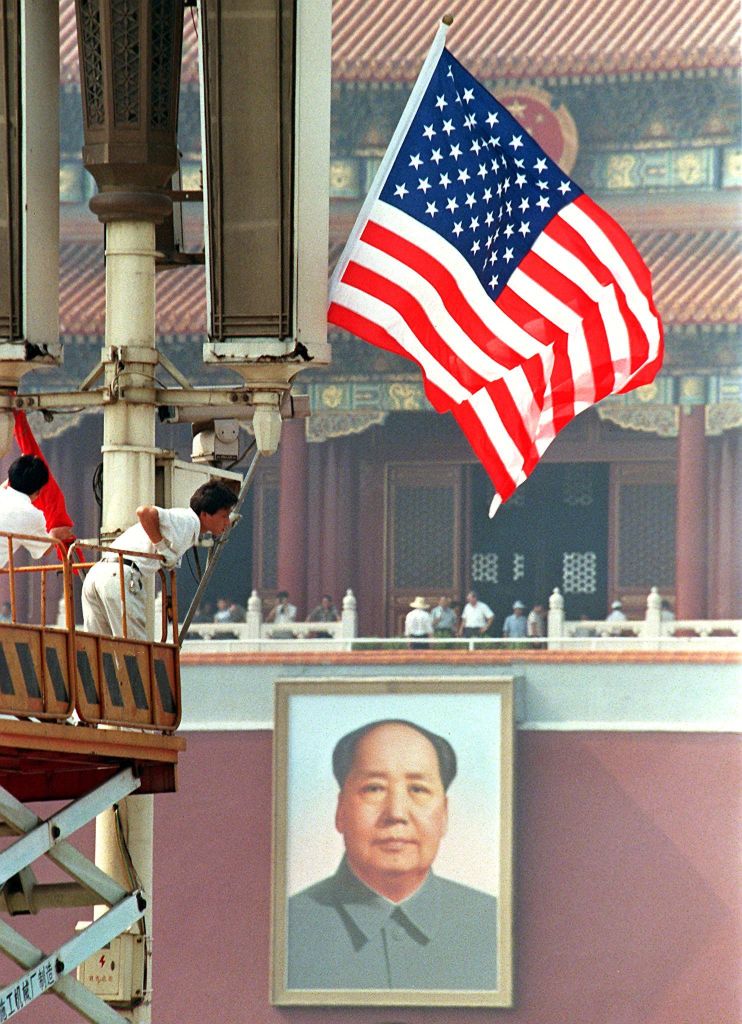Newborns in China can expect more healthy years of life than Americans
The Chinese economy has a ways to go before its size matches that of the U.S. But in other key metrics, the Chinese have already pulled ahead.
China's "healthy life expectancy"—a measure of how many years a person can expect to live independently—has surpassed that of the U.S. for the first time, according to the World Health Organization. Healthy life expectancy in China was 68.7, compared with 68.5 for U.S. babies.
The WHO figures relate to 2016, the latest year for which data is available.
"A baby in the U.S. is still expected to live longer than a Chinese baby, but we have health problems in the U.S. ... that in China they don't have," Willis Sparks, Signal writer for GZero Media, told CBSN. "I think this should be a wake-up call for people in the U.S."
Americans' life expectancy has been dropping in the past several years, driven in large part by rising income inequality. In particular, early deaths among working-class men, as well as stagnating lifespans for lower earners, have pushed life expectancy to about 78 years — down from a peak of 79.
Put differently, despite medical advances and improving quality of life for the economic elites, lower earners have basically not seen any improvements in longevity since the 1980s.
Today, 40-year-old man in the top 1 percent of U.S. earners can expect to live to 87, while the same man among the lowest 1 percent of earners has an expected lifespan 15 years shorter.
China is expected to surpass the U.S. in overall life expectancy within the next decade, according to Reuters.
While China also suffers from income inequality, some research indicates it's been improving in recent years, thanks to a strengthening social safety net.






